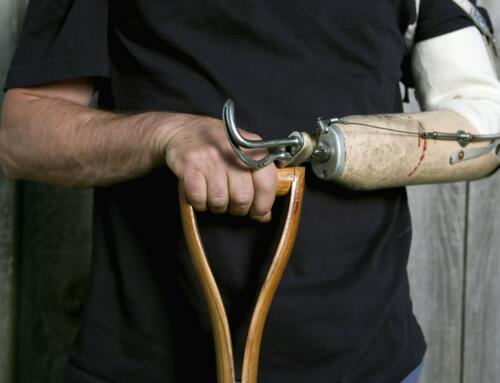A concussion can happen anywhere, even at the safest workplace. Of course, they are more common in workplaces which require physical work like construction sites and warehouses, but they can occur in settings as safe as a business office. Regardless of where they occur they cause devastating brain damage. That’s why everyone should know that head injuries are protected under the Pennsylvania Workers’ Compensation law.
Traumatic brain damage is usually visible, and it can cause changes in a person’s capacity to think properly, absorb information, or even care for themselves. It probably seems straightforward to think that a head injury which causes traumatic brain damage would be covered by workers’ compensation but proving that they are disabling can be difficult. Especially when they are looked at as so-called “minor” injuries like concussions. Doctors recommend plenty of rest, medications, and no driving for a period of time. This leads to missed work, missed pay, and medical expenses. There is no definitive timeline for recovery from a concussion. For some it can be a matter of hours, for others it can take days, weeks or even months. Workers’ compensation protects employees if they miss work because of any type of brain trauma.
What happens if you suffer a head injury at work?
If you fear you’ve suffered a brain injury, the first thing you should do is inform your employer. Reporting your injury early and keeping a record of your injuries will start a paper trail that will help support your workers’ compensation claim.
In the event of a probable head injury, you should seek medical help as soon as possible. An MRI or CT scan may be required. Below are signs and symptoms of a brain injury:
- Loss of memory
- Difficulty concentrating on tasks you usually perform with ease
- Balance issues
- Loss of basic motor functions
- Slurred speech
- Compromised vision
In recent years, there is more understanding about the impact they can have on long-term health if they go untreated. Sometimes these symptoms are mild or hard to detect making them difficult to prove and diagnose.
Workers’ Compensation for concussions and head injuries.
You may be eligible to collect workers’ compensation if your injury to your head occurred at work or while working. These benefits will cover lost wages and medical bills while recovering and not working. Workers’ compensation is designed to put your mind at ease so that you can devote all your time to getting better.
Workers’ Compensation for traumatic brain injury claims.
You can also collect workers’ compensation for traumatic brain injuries. These injuries occur many ways, including:
- Blunt force to the head
- Shaking the head
- Jarring the head
You might sustain a traumatic brain injury in a car accident while running a work-related errand. This is still a work-related event and covered by workers’ compensation. Symptoms of a traumatic brain injury include:
- Nausea
- Fatigue
- Headaches
- Confusion
- Mood swings
It’s important to note that symptoms from a brain injury may take days to surface. You shouldn’t wait until you see signs of a concussion or brain trauma to seek treatment. Go to the doctor as soon as you sustain the injury.
Returning to work after a concussion.
If you feel like you are ready to return to work, discuss this with your doctor first, then, when you return to work, discuss your symptoms with your supervisor so they are able to properly support your return. If your doctor provides you with restrictions be sure to provide them to your employer and don’t do anything outside of those restrictions.
Suffering an on-the-job injury and missing work because of it can be a difficult experience. I am a certified workers compensation lawyer with more than 30 years of experience treating cases involving head injuries. Contact my office for a free consultation either in person or online. Consultations are free and I don’t get paid until your case is resolved.







